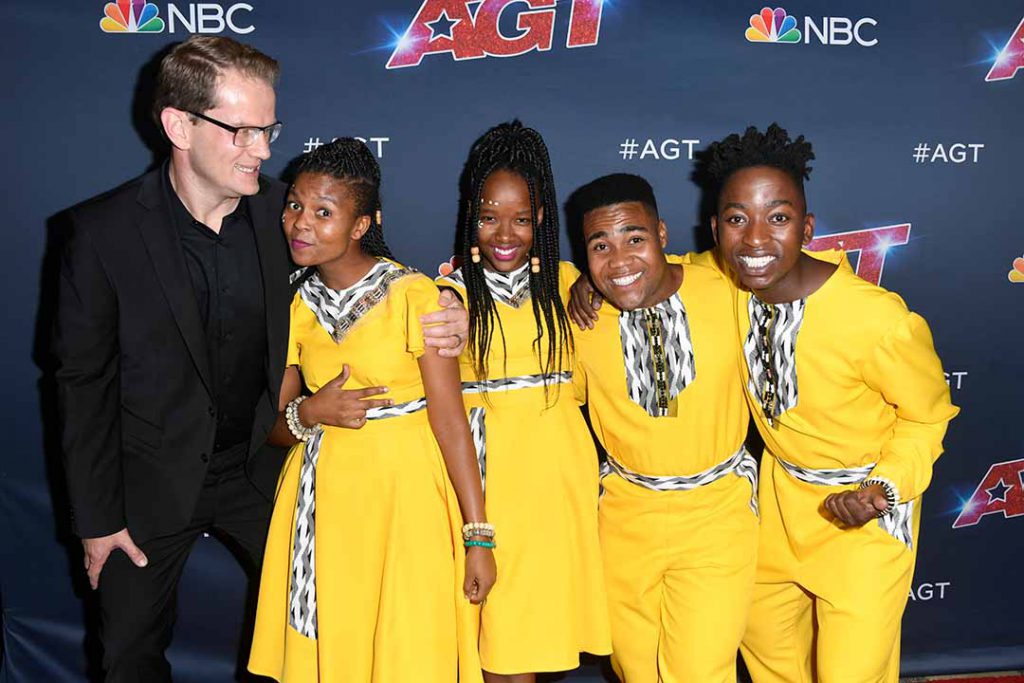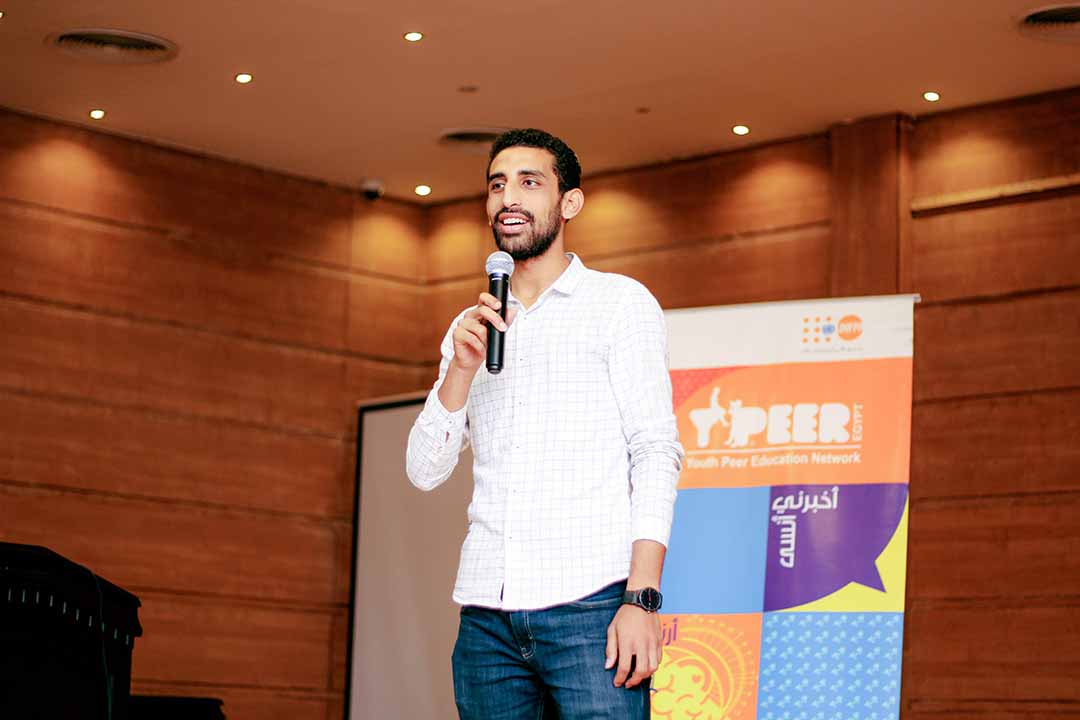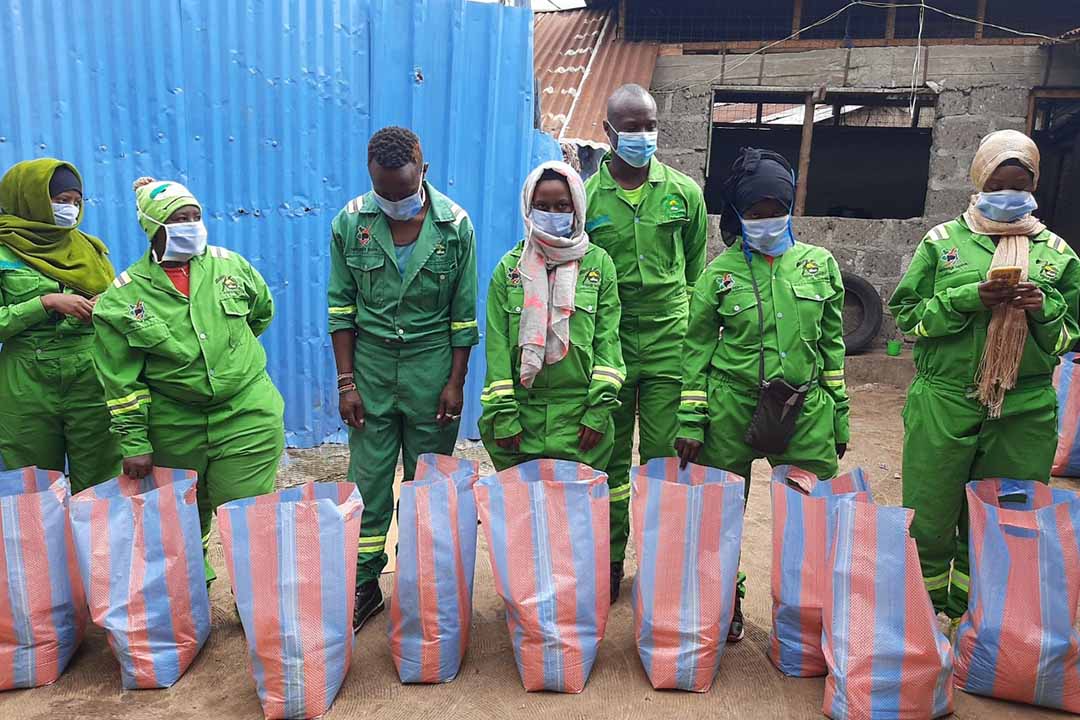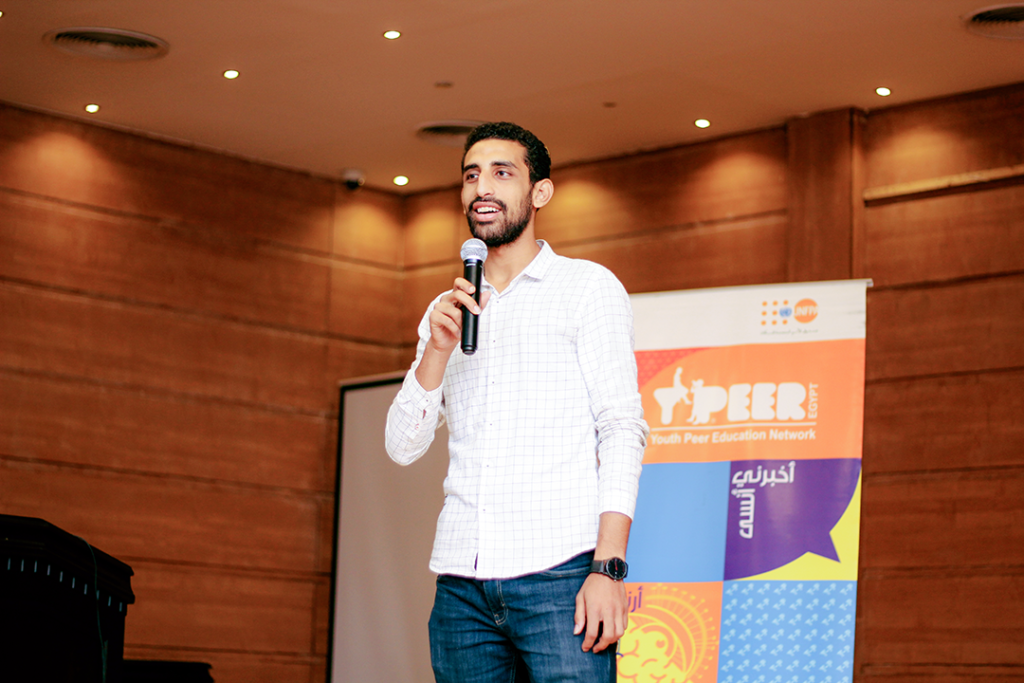Youth: Fighting COVID-19 their way
Africa’s young people are using resourcefulness and new technologies to engage and make a difference in the battle against the virus

As Africa continues to battle COVID-19, the continent’s youth are not sitting idly by waiting for the worst to come. Across the continent, young people are hard at work, in partnership with governments and diverse partners, providing solutions to help reduce the spread of the virus and ways to address the socioeconomic impact of the pandemic, through engagements and innovation. In Egypt, Mohamed Elkholy, 25, is using new technologies to engage young people, fight misinformation about COVID-19 and spread the right messages about the virus. Mohamed, the leader of youth network Y-Peer Egypt, has been hosting a youth-to-youth podcast programme to create awareness among young people. In a country like Egypt, where youth constitute some 60% of the population, finding effective ways to engage young people and empower them is important in the battle against the pandemic.
Gwendolyn Myers, a 29-year-old peace activist, is co-chairing the National Youth Taskforce Against COVID-19 in Liberia. The task force was set up under the auspices of Liberia’s Ministry of Youth and Sports, bringing together five youth-led organisations. It was established to mobilise and build young people, empowering them to to lead campaigns against the pandemic in local communities. The task force, for example, uses young people at grassroots levels to ensure food is distributed to vulnerable sectors of the population, and to distribute essential sanitary material in high-risk virus hotspots such as slum communities and informal settlements with large populations and a limited supply of social services. In East Africa, Kibra Green is a youth organisation in Kenya’s largest slum, Kibera, in the capital Nairobi. The group is passionate about the localised implementation of the United Nations Sustainable Development Goals (SDGs), including SDG 3 on health and wellbeing.
The group has been engaged in several initiatives to mitigate and reduce the spread of COVID-19. Alfred Otieno, a leading member of Kibra Green, believes that youth have a critical role to play in the fight against the virus. In their case, the group, in partnership with UN-Habitat and Médecins Sans Frontières (Doctors without Borders), has set up hand-washing stations for residents, enabling them to sanitise. The group has also handed out masks, disseminated relevant information about COVID-19 and prevention, as well distributed food and other essential items to vulnerable families, including sanitary pads to needy girls. Kennedy Odede, the CEO and founder of Shining Hope for Communities (SHOFCO), a grassroots organisation that offers support to several hundred thousand slum residents in Nairobi, argues that youth are in the majority on the continent and yet most of the time young people find themselves marginalised. “We can’t win this COVID-19 war if the youth are not involved,” Odede says.

“We have a new youth in Africa who will not follow orders. This new youth want to be listened to, not told what to do. They believe they have the solutions. Now let’s tap on them to fight COVID-19.” In Democratic Republic of Congo (DRC), Christella Kiakuba, 26, an orphan of military parents and co-founder of community organisation Telema Mwana Ya Mapinga, is helping women and orphans protect themselves from the coronavirus. She is distributing face masks and showing people how to use them, and how to sanitise. She and her organisation deliver food and provide legal help to widows and orphans. In Cameroon, Achaleke Christian, the national coordinator of civil society organisation Local Youth Corner, launched a “One Person, One Sanitiser” campaign in April to prevent the spread of coronavirus, especially among the poor.
He and members of the youth group have produced homemade hand sanitisers using World Health Organization standards and distributed them for free, teaming up with a coalition of youth civil society organisations, medical doctors, pharmacists and a laboratory scientist in the process. In South Africa, young people have been at the forefront of government and community efforts to educate people about the basic preventive measures to help curb the spread of COVID-19. One example is 750Amped, a national campaign launched in May by South Africa’s National Department of Health and the Health and Welfare Sector Education and Training Authority (HWSETA). The initiative, which involved the initial training of 750 learners, was established as “a proactive intervention that leverages the power of youth to inspire changes in social behaviour through training, education, and awareness around COVID-19”, according to the 750Amped website.

Young South Africans have also used the power of music to encourage their communities to practise preventative measures against the virus. The Ndlovu Youth Choir, which was originally formed in 2008 by a Dutch doctor, working in South Africa’s largely rural Limpopo province to help orphans and the children of Aids patients, became a global phenomenon when they reached the finals of the TV show America’s Got Talent. They were forced to cancel an international tour when COVID-19 swept the world, but since then a video of a new song, in isiZulu with English subtitles, that demonstrates how to practise basic preventative measures, has gone viral. North of the border, in Zimbabwe, Bridget Mutsinze, 25, is among a group of youth volunteers working with development organisation Voluntary Service Overseas (VOS), using social media to fight coronavirus misinformation.
They have taken to Twitter, WhatsApp, Facebook and radio to comb through online comments, to identify and correct COVID-19 misinformation. In Côte d’Ivoire, Ibrahima Diabate and the Youth Peace and Security Network recorded a series of awareness-raising videos in different local languages to disseminate the much-needed information about coronavirus. The videos went viral on social media platforms. The use of local languages, and the cultural translation of the messages in ways that make sense to the communities they target, have enhanced their accessibility. And telling the stories of life under COVID-19, in this case among poor and marginalised communities in southern Africa, are dynamic young journalists like the team at Tazama World Media in Kenya, led by James Smart and Kizito Gamba in Kenya, who are dedicated to community-based journalism using smart phones and social media.
As South Africa’s Sport, Arts and Culture Minister Nathi Mthethwa said when he launched youth month 2020 on 2 June, recalling the role of young people in fighting the country’s apartheid regime: “The youth of 2020 have been called upon to fight a much more silent war, the coronavirus pandemic, and to help rebuild a society post COVID-19.” As Mthethwa correctly noted in his address, young people have a major role to play in the fight against the coronavirus – because youth are Africa’s greatest asset and the future of the continent depends on them.

Raphael Obonyo is a public policy analyst. He’s served as a consultant with the UN Department of Economic and Social Affairs (UNDESA). An alumnus of Duke University, he has authored and co-authored numerous books, including Conversations about the Youth in Kenya (2015). He is a TEDx fellow and has won various awards.



